
Each year brings fresh, competing demands on our attention. For many companies, holding a person’s attention for the length of a film or a book is no longer sufficient. The profit imperative demands a greater sacrifice. Enter video games, which are second only to social media in their ability to assume residence in our daily routines.
The business models are distinct, of course: Facebook, TikTok, and Instagram seek to engage us long enough to harvest personal information, which can be used to sell us stuff we might want. Many video games, by contrast, aim to so deeply immerse us in their worlds that we are compelled to purchase digital clothing, furniture, weapons, and subscriptions that allow us to exhibit our tastes and interests online.
The medium has followed this trajectory for years. But, in 2022, the long-term effects have become clearer. In many cases, games are no longer a mode of pure distraction; they demand ongoing investments of time, money, and attention, which are meant not only to satisfy the player but also to appease developers’ shareholders. Ideas refined in the gaming industry are becoming commonplace elsewhere; some new cars require owners to make a one-off payment, or to take up a subscription, to unlock features such as heated seats, high-beam assist, and color-changing paintwork (the automotive industry’s answer to avatar skins). And yet, amid this bleakness, artists find a way to prioritize craft over the balance sheet, producing games that enchant, unnerve, and delight. Here, in no special order, are some of the year’s best.
Elden Ring(PC; PlayStation; Xbox)
In the days following the release of Elden Ring, a vast, vibrant fantasy game directed by the renowned Hidetaka Miyazaki, competitors expressed some bewilderment at its success. Elden Ring’s rules, they argued, were too opaque. Its world—partly imagined by George R. R. Martin, and full of glittering streams, bubbling marshland, and gust-carved hills—was too confusingly open. And, like much of Miyazaki’s work, the game was absurdly difficult, its challenges liable to discourage all but the most tenacious newcomer. It’s true that Elden Ring ignores many of the principles of high-budget game design. And yet there is a powerful magic in its approach. This is not a world built to flatter tourists; it does not lead you by the hand through trials of carefully escalating difficulty. Rather, it seems to exist independently of your presence. How you explore is a matter of personal choice, and you alone must contend with the consequences.
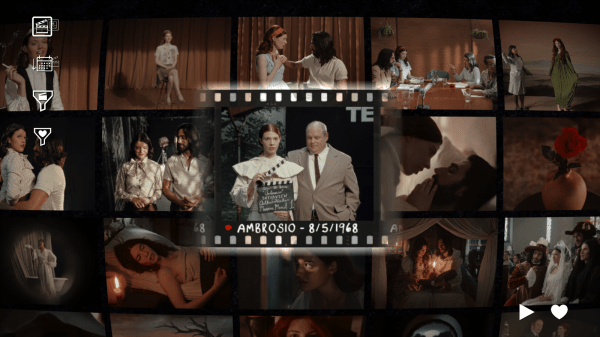
Image courtesy Half Mermaid ProductionsImmortality(Android; iOS; PC; Xbox)
For the past few years, the game designer Sam Barlow has been perfecting a fresh, nonlinear form of storytelling, which bridges the gap between film and games. In Immortality, you sift through live-action footage drawn from three unreleased movies, each of which stars Marissa Marcel (Manon Gage), a fictional starlet who’s gone missing. You browse the trove of unsorted clips via an interface that mimics a Moviola film editor. Pause the footage, click on any actor or prop of interest, and the camera transports you to a related image from another clip—either a scene from one of the films, candid offscreen footage, or snippets from an interview. Slowly, the arc of the films and their creation becomes apparent, and you piece together the mystery of Marcel’s identity and fate. (Gage gives a subtle, layered performance.) The effect is at once unsettling and compelling, marking a new maturity in Barlow’s craft.
Norco(Mac; PC; PlayStation; Xbox)
Awarded the Tribeca Film Festival’s inaugural video-game prize before its release last year, Norco follows the journey of Kay, a young woman who returns to the Louisiana refinery town of her childhood following the death of her mother, who was investigating suspicious activities at the local oil company. The titular town’s decay reflects Kay’s mental state: both are untethered from their roots, tugged toward hopelessness. Kay is also looking for her brother, who has disappeared, and the player explores Norco’s streets via a series of pixelated vistas drawn in purplish, sundown colors. Set in a near-future with android housekeepers, the game nevertheless feels keenly rooted in today’s crises—small town decline, ecological collapse, and the radical isolation experienced by those who grew up online.
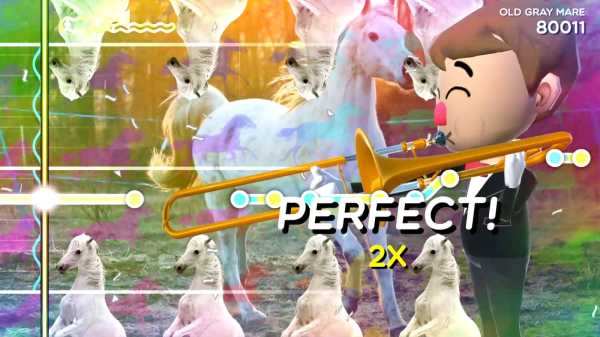
Image courtesy Holy Wow StudiosTrombone Champ(PC)
Since 2009’s The Beatles: Rock Band, the once mighty genre of the music game has all but disappeared, leaving plastic guitar and drum controllers to clutter closets worldwide. So it was a surprise when Trombone Champ—a game in which you play as a trombonist, sliding your cursor up and down a two-octave staff to blast your way through classical pieces, national anthems, and traditional songs—became a viral hit. The game spotlights the inherent humor of the instrument, juxtaposing your wild, lunging notes with a faultless backing track. But a clear respect underpins the silliness. The game describes the trumpet as “the coward’s trombone,” and in time it’s just about possible to hold a clean tune in Lavallée’s “O Canada,” Rossini’s “William Tell” Overture, or Strauss’s “Also Sprach Zarathustra.”
Gran Turismo 7(PlayStation)
Since Gran Turismo’s début, in 1997, the race-car driver and game designer Kazunori Yamauchi has built an interactive encyclopedia of motorsport. An obsession with the minutiae of car design has spurred Yamauchi and his team to preserve everything from the stitching on a leather seat to the precise note of an exhaust pipe across hundreds of models of cars, and the vehicles can also be raced on a variety of international, real-world tracks, carefully re-created in digital form. Gran Turismo 7 is one of the series’ most accomplished entries, a singular celebration in what could be the fossil-fuelled car’s sunset years. An exquisite example of the video game as playable documentary.
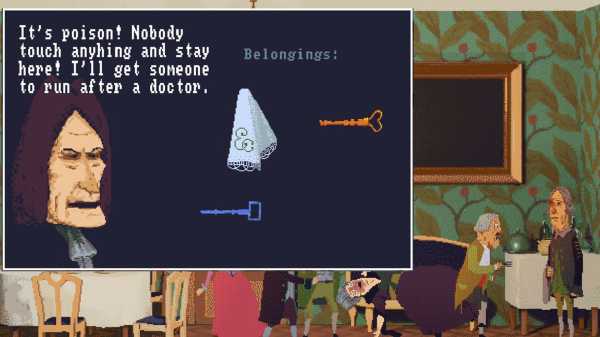
Image courtesy Playstack The Case of the Golden Idol(PC)
This riveting detective game is set in the seventeen-hundreds, and concerns twelve murders that span forty years. In each level, the player confronts one of the crime scenes, unearthing clues in its frozen tableau. By clicking on characters, cadavers, props, and documents, you amass a set of key words, which must be arranged, like jigsaw pieces, to complete a reported account of events. The perils of jumping to conclusions become obvious; only through careful study and deduction will you arrive at the account that describes what truly occurred. Each case is linked by the golden idol, an artifact that promises unsurpassed power but curses each of its owners. Don’t be fooled by the rudimentary art—this is a sophisticated, Sherlockian story about wealth and greed, delivered in a way that rewards close attention.
Vampire Survivors(PC; Mac; Xbox)
Vampire Survivors is a tribute to gaming’s first principles: dodge, defeat, and grow. You play as a warrior dropped into a hostile scene—a battlefield, say, or a haunted library—and tasked with holding back relentless waves of monsters. There is no fight button; your attacks (sword swipes, lightning bolts, thrown daggers, and more) trigger automatically every few seconds, leaving you with nothing to do but dodge enemies, collect dropped gems, and choose which abilities to acquire or upgrade. The result, which melds vintage simplicity with contemporary techniques, is devilishly hard to put down.
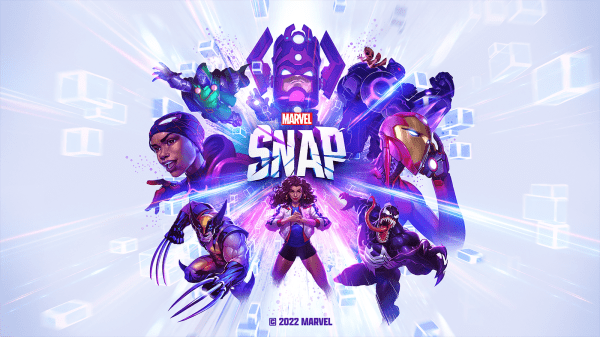
Image courtesy Marvel StudiosMarvel Snap(Android; iOS; PC)
So pervasive is Marvel’s occupation of the culture that to recommend a work bearing the company’s name feels almost anti-entertainment. Still, this taut, inventive card game would work even if it didn’t feature the familiar slate of heroes and villains. Over six turns, you and an opponent place cards at three locations on a virtual table. Each card carries a score value. The player with the highest aggregate score wins that location, and the winner of the most locations wins the game. To complicate matters, cards often carry abilities, and each location on the board usually adds modifiers. A game played as much in the mind as on the table, Marvel Snap, which is free to download, is also tastefully monetized, and does not (currently) pressure players into paying with anything more than their time.
Hardspace: Shipbreaker(PC; PlayStation; Xbox)
In Hardspace: Shipbreaker, you assume the role of an astronautical salvage worker, disassembling redundant spaceships in zero gravity, panel by panel. Each ship is robustly built, and you use an intimidating arsenal of tools to slice through connecting bolts. Eventually, the hull breaks apart and the pieces can be sorted for scrap or recycling. Beyond the immediate, often relaxing joy of dismantling spacecraft, this is a story about workers’ rights. Your meagre paycheck chips away at your debts, and mistakes prove costly: damaged parts are worth less, and the cost of rescue if you become lost in space is docked from your wages. In time, you realize that the company’s relentless pursuit of growth relies on abuses at both a micro and macro scale.
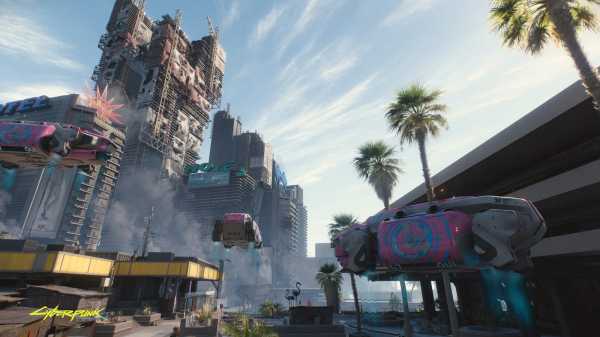
Image courtesy CD Projekt RedCyberpunk 2077(PC; PlayStation; Xbox)
Cyberpunk 2077’s début, in December, 2020, was a high-profile disaster. The game, based on a beloved tabletop R.P.G., is set in a futuristic, corporation-ruined city where body hacks have turned humans into computer-augmented beings. It launched in an unfinished state; executives at the company’s Polish developer, CD Projekt Red, were apparently unwilling to stop a project riddled with glitches. The bugs consumed any good will that the company had earned with its excellent adaptations of the “The Witcher” novels; Sony initially removed the game from its digital store and offered players refunds. Eventually, though, CD Projekt Red began repairing the game to match the original vision. Today, Cyberpunk 2077 is a marvel of design, engineering, and—thanks in part to Keanu Reeves’s memorable turn as a belligerent activist—imagination.

Image courtesy Nintendo Kirby: The Forgotten Land(Nintendo Switch)
As a pink, furless blob, Kirby has always been overshadowed by Nintendo’s A-list mascots. But, thirty years after his Game Boy début, he finally has a game to rival Mario’s finest. In The Forgotten Land, Kirby overcomes his lack of obvious talent by assuming the abilities of his food. Swallow a car and he can tear through the streets like a Fiat 500; guzzle a staircase and he can reach higher ground. This has been called the first Kirby game to be fully three-dimensional, and a series of brisk levels, full of delicious set pieces, show off the talents of Nintendo’s designers.
Wordle(Android; iOS; Web)
Unless you were a member of Josh Wardle’s inner circle, it’s unlikely that you started playing Wordle before 2022. Wardle, the Welsh software engineer who created the game as a gift for his wife, saw Wordle become a phenomenon this year; in March, after a seven-figure acquisition, it even became part of the Times’s suite of bookish diversions. Its concept is simple but exquisitely executed. You have six attempts to guess a five-letter word. The game offers feedback on incorrect guesses; success relies on a wide vocabulary and powers of elimination. But Wordle’s power comes from its formal restraint: one puzzle every twenty-four hours, a blissful limitation in an era of excess. It’s been surprisingly political, too. The Times removed “slave” and “lynch” from the pool of potential words and, in May, barred the word “fetus,” seemingly in response to the Supreme Court’s leaked draft opinion overturning Roe v. Wade.
Honorable Mentions
- Cursed to Golf (Nintendo Switch; PC; PlayStation; Xbox)
- Hyper Demon (PC)
- Neon White (Nintendo Switch; PC)
- OlliOlli World (Nintendo Switch; PC; PlayStation)
- Pentiment (PC; Xbox)
- Poinpy (iOS)
- Prodeus (PC; PlayStation; Nintendo Switch; Xbox)
- Roadwarden (Mac; PC)
- Signalis (Nintendo Switch; PC; PlayStation; Xbox)
- Strange Horticulture (Nintendo Switch; PC)
- Triangle Strategy (Nintendo Switch; PC)
- Tunic (Mac; Nintendo Switch; PC; PlayStation; Xbox)
Sourse: newyorker.com






